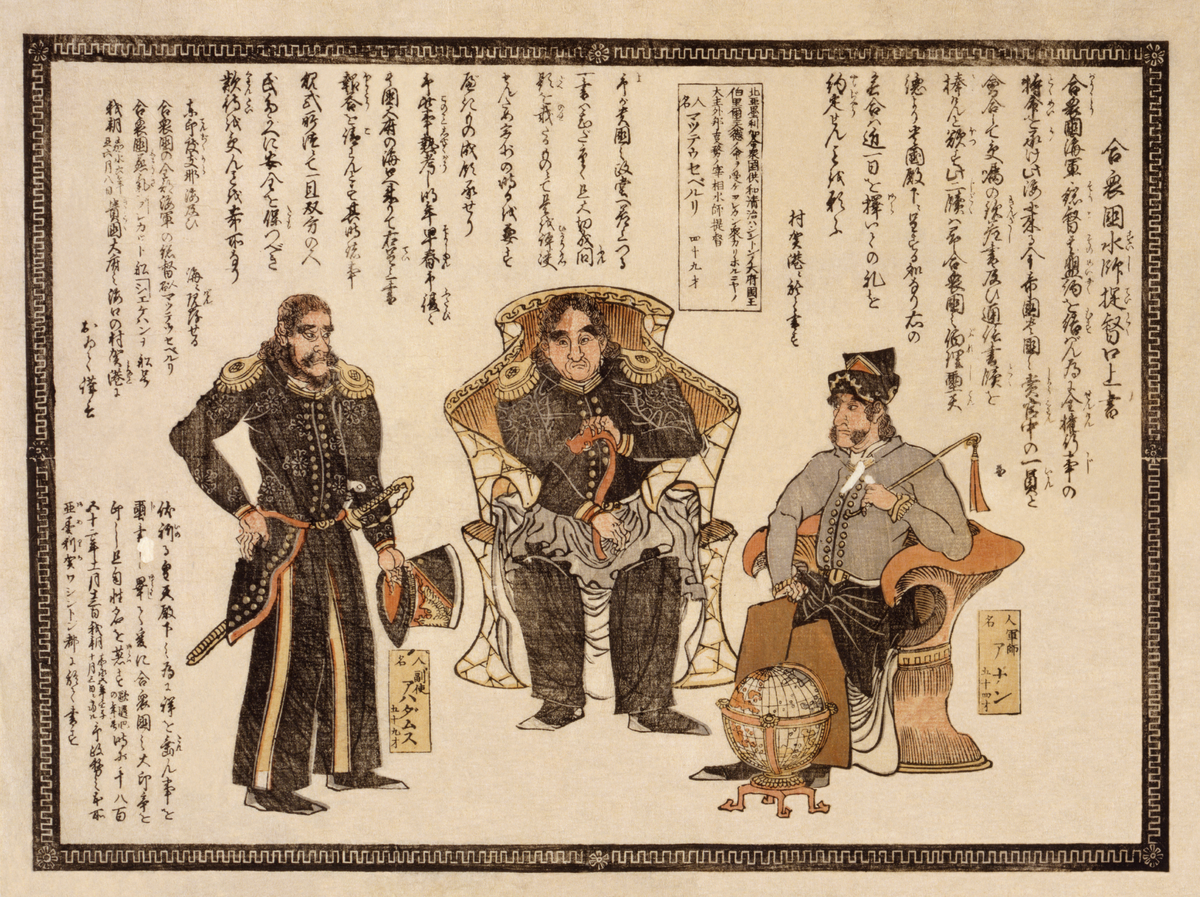By: Siddharth Jayaprakash
Ever since President Roosevelt began using the term to disparage the anti-war lobbyists in the 1940s – lobbyists who lost their last vestige of credibility after the bombing of Pearl Harbour – ‘isolationism’ has had a distinctly negative tone, bringing to mind narrowmindedness and an oafish refusal to accept the inevitability of globalisation. Astute political commentators have learnt to watch out for the rise of this attitude in the populus after every unfortunate mishap in the global sphere – whether economic or military – reminiscent of a tortoise retreating into its shell after a run-in with a coyote. Or perhaps these commentators would prefer to use the image of the ostrich digging its head into the sand – the futility of the ostrich’s evasive manoeuvre, they would say, is a more fitting metaphor of the naïve government policies that ‘isolationism’ has come to signify.
And there is a lot of truth in this attitude. In a world that prioritises the generation of individual wealth it is a matter of fact and not opinion that free market capitalism is at logger heads with economic isolationism. And the success of the development wings of the United Nations – especially UNICEF and the various departments of the ECOSOC – is a testament to the global urge to standardise certain social norms. The empowerment of women, for instance, is non-negotiable – regardless of what one’s culture dictates, the equal status of women is guaranteed by the Human Rights Charter. But this is not the entire picture, and in a world where isolationist tendencies seem to be cropping up not just in the West but also in the East – where nationalist parties are in power both in India and in the Philippines – an exploration of just what ‘isolationism’ could entail has never been more crucial.
This article concerns the – until recently – inexorable surge towards consolidation and breakdown of legal and economic barriers that has characterised world politics and the recent reaction against it. Ever since the end of the Second World War, Europe and the United States has led the charge against isolationism – for instance the British Nationality Act of 1948 removed restrictions on dual citizenship for the first time and in the 1967 Afroyim v Rusk case, the US Supreme Court prohibited the government from involuntarily stripping the US citizenship of those who carried multiple passports. Away for the legal sphere and into the economic, ever since the Bretton Woods Conference of 1944 and the setting up of the European Community by the Treaty of Rome in 1957, the world’s economy has never been more inter-linked. But now we seem to have entered an age where this inter-connection is seen as dangerous dependency. While the dangers of this attitude has been explored by multiple studies, this article attempts to dissect it and perhaps – albeit in the role of a devil’s advocate – make a case for it.
To understand the present situation, it is necessary to consider the historical picture. In a world with relatively inefficient communication networks, it was no surprise that multiple societies cropped up in history, each directed by its own philosophies. And when communication became more efficient and two societies with varying philosophies were brought into contact, the difficult job of creating a philosophy that accommodates both of them began – inevitably aspects of each had to be discarded although arguably the sum was greater than its parts. But the trickier situation is where one society invades another (whether via military means or soft power) – in this situation the mutual respect of the negotiating table does not exist. The ancient city of Numantia – famous for giving the Romans a run for their money for decades before Scipio Africanus finally broke the city in 133 BC – has frequently been used by Spanish nationalists as a symbol of Spanish pride. But as the historian Yuval Noah Harari wryly points out in Sapiens, the modern Spanish have more in common with the Ancient Romans than the Numantians. This is the legacy of any successful invading force, where the identity of a conquered people is replaced by that of the invaders. Something of a similar nature had begun to happen in the East – especially in ex-colonies of the great European empires. The Dutch, French, and British may have been long gone, yet they had finished their job before they left – every inhabitant of every country on the globe now believes in some variant of individualism, capitalism or socialism, all purely Western philosophies.
From a purely objective viewpoint there is nothing particularly deplorable about this – why should one mourn the passing of a hundred ways of life so long as the one we are left with works well enough? However, diversity has a way of cropping up in nature, it has an important function to play – and this is a fact that is often forgotten by those who embrace the common world view that globalisation engenders: that of slow but steady homogenisation. According to the commonly accepted theory of natural selection, diversity of genes in a gene pool is a virtue. But surely homogeneity is better – the more similar people are the better they understand and trust each other? While this is certainly true, the ‘invisible hand’ of mathematical probability that directs natural selection has a way of factoring in unprecedented occurrences. In a pack of wolves, the random albino is ostracised – and for good reason: in a group that depends so much on coordination and mutual trust the presence of a conspicuous white wolf is a wrench in the machine. Yet if this pack were plucked out of its home and let loose in the Arctic tundra, this albino would be the pack’s salvation.
Of course ‘genes’ as such have not played a very major part in the rise of mankind since the Cognitive Revolution 70,000 years ago – we now primarily depend on the capacity of our brains to create long networks. But our philosophies now play the function of genes – so in a way natural selection albeit in an altered sense still governs us. Most animals behave as they are programmed to do – as their genes program them to do. But human beings have taken control of their own programming – we behave now not as our genes dictate us, but as our philosophies direct us. So is it not logical that ‘philosophical diversity’ is now as beneficial as ‘genetic diversity’ used to be?
There is much evidence to support the above proposition. History is replete with instances where a civilisation was benefitted by a discovery – scientific or otherwise – that was spawned in a foreign one. Take modern egalitarianism – it is now the gospel truth that all human beings are equal. Yet this is not a scientific fact, it is a philosophical fiction. It has its roots in the idea of ‘individualism’ which in turn was derived from the Christian doctrine that teaches the existence of the ‘soul’ that resides in every human being. Similarly, it is arguable that the modern push to vegetarianism has its roots in Eastern philosophies that taught that animals were just human beings stuck in the eternal cycle of rebirth that later led to Jain teachings that stress on the equality of all living things.
But the important question – the question that ties this discussion to modern isolationist tendencies – is: “Is there any reason why these diverse philosophical positions cannot be born and take root in a single global society? Must we really have separate societies that cross-fertilise each other at regular intervals?” There is some wisdom in this question. After all reactions to the status quo are common historical occurrences – communism was a purely Western ideology that evolved as a direct reaction against capitalism, another Western ideology. The answer to that is these reactions are extremely slow-acting. It has to be borne in mind that all of society functions on the basis of various philosophical fictions – human rights for instance, are not demonstrable facts. People have to be conditioned into believing in their existence. Obviously, this conditioning is a long drawn out process. While it is easy to persuade someone that, say, planting a seed and watering it will result in a plant before long – because this is a demonstrable fact – it is not as simple to persuade them that it is wrong to treat those weaker than them in a despicable manner – since there is no objective reason why that is so.
The concepts of liberty, fraternity and equality – as well as the various human rights that have since evolved – took centuries of conditioning to become accepted in Europe. On the other hand, within two generations of colonial Indians being exposed to these concepts in English universities, the Indian masses had firmly begun to believe in their equal status. Unprovable concepts are always more digestible if a large enough group already believes in them. This is the biggest advantage of limited isolationism in the global sphere – a single society sometimes has the tendency to behave like a hive mind, with a single popular narrative; it is often beneficial for it to be confronted with a separate and equal hive mind that has fleshed out and is driven by a completely different narrative that functions just as well – it prompts the former into reassessing what it believes to be the absolute truth. Democracy, for instance, would not have been so readily accepted by the Indians in 1947 – a nation consisting of hundreds of princely states at the time of Independence and a rich monarchical history – if its success had not been proven in the United States and Britain. It is unlikely that an independent concept of democracy born in India would have been so quickly and readily accepted by the majority.
Of course this line of argument does not necessarily point towards a world where countries barricade themselves, completely oblivious to external happenings. Scientific and technological advancements will continue to be sought and traded around – science by definition deals with provable concepts that are objectively true. But science is but a tool and philosophies are what gives direction to a society – and variety in philosophies is what is advocated by this article. Take the example of a modern research laboratory. There are many reasons why a single large centrally administered laboratory is undesirable. A single large organisation is not conducive to mavericks – inventive new methods that might not necessarily have immediate benefits are drowned under the majority consensus. So while collaboration is a noble ideal, it is in the interests of frequent drug discovery to split the body of chemists into multiple groups. What is lost in available resources, is gained in variety – diverse roads to diverse goals.
As mentioned earlier, the debate regarding the merits and demerits of isolationism has never been more relevant. But while engaging in this debate it is important to not regard ‘isolationism’ as a monolith. When ‘isolationism’ is mentioned, while economic isolationism is what immediately comes to mind – and accordingly criticised – it is arguable that the popularity of nationalist parties all around the globe is at least partly due to cultural and philosophical isolationism – as evidenced by the anti-Islamic tendencies in the West. While criticising isolationism it is important to keep in mind that the former and the latter arise due to different factors and also that while cultural isolationism is often expressed in ugly ways – through hate crimes and anti-immigrant policies – the urge that powers the attitude – a mistrust of globalisation and the gradual consolidation of the world’s societies into a single homogenous mass – might not be entirely deluded.
Siddharth Jayaprakash is a finalist lawyer at the University of Oxford, currently finishing his Bachelor of Arts in Jurisprudence. He is the Current Affairs Correspondent for the Oxford Policy Blog and has also written for the Oxford India Policy Blog. He has been awarded the Barbara Mills Research Prize 2017 for an article on common law torts. His interests include world politics, public policy, ethics and religion.
This article originally appeared in The Initiative for Policy Research and Analysis
Image: A Japanese woodblock print depicting Commodore Matthew Perry (centre) and other officers of the 1852-3 expedition that forced Japan to open itself to trade and diplomatic relations with the West after a period of prolongued isolation. Circa 1854. From The United States Library of Congress. (via Wikipedia)










Leave A Comment